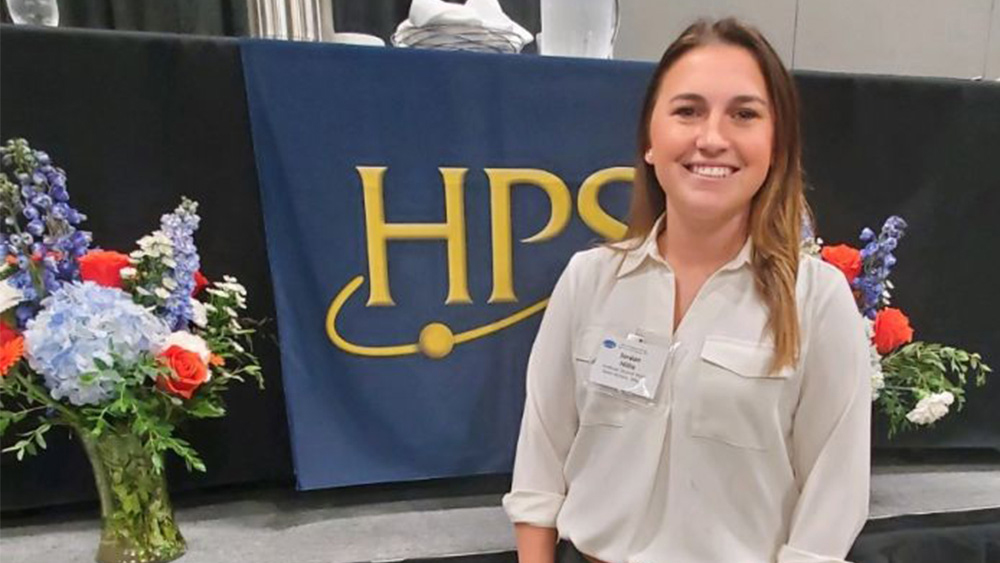
Nuclear engineering graduate student Jordan Hillis '21 received the H. Wade Peterson Memorial Award at the 67th annual Health Physics Society (HPS) meeting in Spokane, Washington, this past summer. The award recognizes outstanding student presentations in accelerator health physics.
Hillis’ presentation is part of the research she performed with Oak Ridge National Laboratory (ORNL), where she served as an intern in the summer of 2021. She already had planned to attend the meeting when she submitted an abstract of her research to the HPS.
Her abstract was selected, and she presented her research at the meeting, which also showed her other aspects of the health physics field.
“The meeting for me ended up being a huge career fair and networking opportunity. I had no idea there were so many different disciplines within the field of health physics,” Hillis said. “It was such a rewarding opportunity to get to meet so many diverse professionals and learn what they do across the whole nation.”
After her presentation, Hillis learned that she was selected as the recipient of the H. Wade Peterson Memorial Award and would receive the honor at a dinner in front of approximately 200 health physics professionals.
She said she was overwhelmed with gratitude and appreciation, and the award served as a recognition of her hard work and acknowledged her as a researcher.
“This award makes me feel like I belong in the career field that I am passionate about, and I feel as if I have proven myself as they chose to recognize my abilities,” Hillis said. “Getting this award, acknowledgment and applause was one of the greatest moments in my life thus far and makes me even more excited to graduate and continue in the field.”
An efficient discovery
Hillis’ internship was virtual due to the COVID-19 pandemic, but she said the experience remained valuable. She was mentored by Dr. Scott Schwann, consultant health physicist for ORNL, and was able to put her classroom knowledge into real-world obstacles.
“It taught me that the world of research requires you to constantly learn new material in order to help not only the facility you work at but potentially others across the country,” Hillis said.
Hillis’ research set to prove a certain type of atom with excessive nuclear energy — known as a radionuclide — should not be treated with as much regulation as similar radionuclides. The radionuclide Hillis examined is known as beryllium-7, which commonly occurs at the Spallation Neutron Source accelerator at ORNL.
Hillis found beryllium-7 is not harmful to people and is difficult for radiation detectors to detect. In turn, she suggests that less-strict regulations for beryllium-7 could save time and money for Spallation Neutron Source operations and employees.
“This research proves that safe operations are the main priority for all health physicists and that health physicists have the capability to make facilities work in a more efficient manner while maintaining the highest level of safety possible for employees,” Hillis said.
Hillis is earning her master’s degree in the Department of Nuclear Engineering, specializing in health physics with Dr. Craig Marianno. She earned her bachelor’s degree in nuclear engineering from Texas A&M University in 2021.